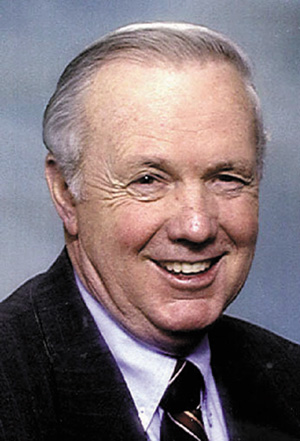No. 76 - THE LEAST IMPORTANT WORD
No. 76
Jim Davidson...NEWSPAPER COLUMN
THE LEAST IMPORTANT WORD
There is a word in the English language that is used, perhaps more than any other, yet it is the least important word of all. Do you know what it is? Before I address this question, however, I would like to share some personal thoughts with you about this column. If you have become a regular reader over the past several months, I would like to say a very sincere "thank you" for your interest and also for your time. It's my heartfelt desire that a good number of my topics will speak directly to you and your interests and will benefit you in a multitude of ways.
I'm pleased to say that we now have newspapers from coast-to-coast who carry this column and even though we may be miles apart, I hope you will think of me as a good friend who stops by for a visit each week. If you have a comment or suggestion about anything I've said in the past or an idea or suggestion for a future column, please call the fine people at this newspaper. If they don’t run it at the end of the column I feel sure they will give you my address. Regardless of the nature of your comments, if you write me, I promise I will respond.
Now, back to my earlier question: Do you know the least important word in the English language? Like most things of this nature, it's a matter of perspective, but according to an article I ran across a while back, titled A Short Course In Human Relations. I've already used it a good number of times. It's "I" -- that's right, the big "I". As the saying goes, "I, I me, myself and my." "I" did this, "I" did that, "I" want, "I" will, "I" can't, "I" won't, "I" shouldn't and so forth. Without further comment from me, here is:
A Short Course In Human Relations
The six most important words: "I admit I made a mistake." The five most important words: "You did a good job." The four most important words: "What is your opinion?" The three most important words: "If you please." The two most important words: "Thank you." The single most important word: "We." The least important word: "I."
As some wag has said, the problem with most people is that their "I"s are too close together. When it comes to changing our focus from "I" to "we", here is a quotation by the English novelist, Charles Kingsley that may be worth thinking about. "If you want to be miserable, think about yourself, about what you want, what you like, what respect people want to pay you and what people think of you."
At this point, I'm just going to lay it on the line and say something that you may not want to hear. The problem for most of us is that we are too self-centered and by nature we are selfish. In other words, we are too wrapped up in ourselves and our own plans, ambitions and desires to think about other people and how we can help them. While we all want to succeed we must remember that success is not to be achieved by following our natural wants and desires. Success is achieved by doing those things that most people don't want to do and that's why so few people achieve outstanding success.
If you will take the time to go back and re-read the Short Course In Human Relations and begin to use the key words and phrases it talks about, i.e., "I admit I made a mistake," "You did a good job," "What is your opinion?", "If you please." "Thank you," and "We," when it is appropriate to do so, it will be a tremendous help to you. Changing our habits is not an easy thing to do, but when it comes to making other people feel genuinely important, the results will be very rewarding. (EDITOR'S NOTE: Jim Davidson is a motivational speaker and syndicated columnist. You may contact him at 2 Bentley Drive, Conway, AR 72034.)
